Pre-Existing COVID-19 / SARS-CoV-2 Immunity Found in Uninfected Individuals
|
By HospiMedica International staff writers Posted on 28 Jul 2020 |
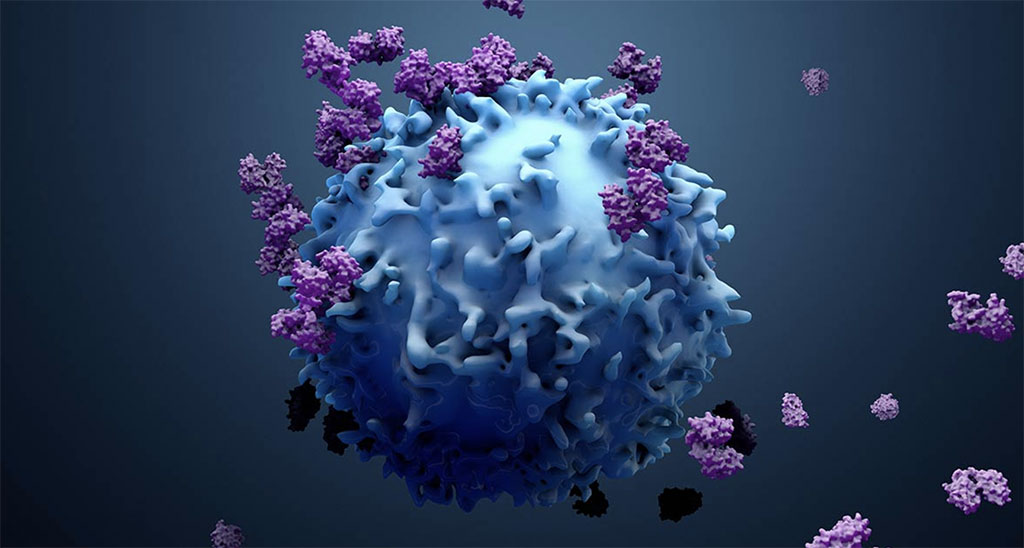
Illustration
A study has uncovered the presence of virus-specific T cell immunity in people who recovered from COVID-19 and SARS, as well as in some healthy study subjects who had never been infected by either virus, suggesting that a level of pre-existing SARS-CoV-2 immunity is present in the general population.
The study conducted by scientists from the Duke-NUS Medical School (Singapore), in collaboration with the National University of Singapore (NUS) Yong Loo Lin School of Medicine, Singapore General Hospital (SGH) and National Centre for Infectious Diseases (NCID) found that SARS-CoV-2-specific T cells are present in all recovered COVID-19 patients, as well as in all subjects who recovered from SARS 17 years ago, and in over 50% of both SARS-CoV-1 and SARS-CoV-2 uninfected individuals tested. The findings suggest infection and exposure to coronaviruses induces long-lasting memory T cells, which could help in the management of the current pandemic and in vaccine development against COVID-19.
The T cells, along with antibodies, are an integral part of the human immune response against viral infections due to their ability to directly target and kill infected cells. The scientists tested subjects who had recovered from COVID-19 and found the presence of SARS-CoV-2-specific T cells in all of them, which suggests that T cells play an important role in this infection. Importantly, the scientists showed that patients who recovered from SARS 17 years ago after the 2003 outbreak, still possess virus-specific memory T cells and displayed cross-immunity to SARS-CoV-2. The scientists will now be conducting a larger study of exposed, uninfected subjects to examine whether T cells can protect against COVID-19 infection or alter the course of infection. They will also be exploring the potential therapeutic use of SARS-CoV-2-specific T cells.
“Our team also tested uninfected healthy individuals and found SARS-CoV-2-specific T cells in more than 50% of them. This could be due to cross-reactive immunity obtained from exposure to other coronaviruses, such as those causing the common cold, or presently unknown animal coronaviruses. It is important to understand if this could explain why some individuals are able to better control the infection,” said Professor Antonio Bertoletti, from Duke-NUS’ Emerging Infectious Diseases (EID) program, who is the corresponding author of this study.
“We have also initiated follow-up studies on the COVID-19 recovered patients, to determine if their immunity as shown in their T cells persists over an extended period of time. This is very important for vaccine development and to answer the question about re-infection,” added Associate Professor Tan Yee Joo from the Department of Microbiology and Immunology at NUS Yong Loo Lin School of Medicine and Joint Senior Principal Investigator, Institute of Molecular and Cell Biology, A*STAR.
“While there have been many studies about SARS-CoV-2, there is still a lot we don’t understand about the virus yet. What we do know is that T cells play an important role in the immune response against viral infections and should be assessed for their role in combating SARS-CoV-2, which has affected many people worldwide. Hopefully, our discovery will bring us a step closer to creating an effective vaccine,” said Associate Professor Jenny Low, Senior Consultant, Department of Infectious Diseases, SGH, and Duke-NUS’ EID program.
Related Links:
Duke-NUS Medical School
The study conducted by scientists from the Duke-NUS Medical School (Singapore), in collaboration with the National University of Singapore (NUS) Yong Loo Lin School of Medicine, Singapore General Hospital (SGH) and National Centre for Infectious Diseases (NCID) found that SARS-CoV-2-specific T cells are present in all recovered COVID-19 patients, as well as in all subjects who recovered from SARS 17 years ago, and in over 50% of both SARS-CoV-1 and SARS-CoV-2 uninfected individuals tested. The findings suggest infection and exposure to coronaviruses induces long-lasting memory T cells, which could help in the management of the current pandemic and in vaccine development against COVID-19.
The T cells, along with antibodies, are an integral part of the human immune response against viral infections due to their ability to directly target and kill infected cells. The scientists tested subjects who had recovered from COVID-19 and found the presence of SARS-CoV-2-specific T cells in all of them, which suggests that T cells play an important role in this infection. Importantly, the scientists showed that patients who recovered from SARS 17 years ago after the 2003 outbreak, still possess virus-specific memory T cells and displayed cross-immunity to SARS-CoV-2. The scientists will now be conducting a larger study of exposed, uninfected subjects to examine whether T cells can protect against COVID-19 infection or alter the course of infection. They will also be exploring the potential therapeutic use of SARS-CoV-2-specific T cells.
“Our team also tested uninfected healthy individuals and found SARS-CoV-2-specific T cells in more than 50% of them. This could be due to cross-reactive immunity obtained from exposure to other coronaviruses, such as those causing the common cold, or presently unknown animal coronaviruses. It is important to understand if this could explain why some individuals are able to better control the infection,” said Professor Antonio Bertoletti, from Duke-NUS’ Emerging Infectious Diseases (EID) program, who is the corresponding author of this study.
“We have also initiated follow-up studies on the COVID-19 recovered patients, to determine if their immunity as shown in their T cells persists over an extended period of time. This is very important for vaccine development and to answer the question about re-infection,” added Associate Professor Tan Yee Joo from the Department of Microbiology and Immunology at NUS Yong Loo Lin School of Medicine and Joint Senior Principal Investigator, Institute of Molecular and Cell Biology, A*STAR.
“While there have been many studies about SARS-CoV-2, there is still a lot we don’t understand about the virus yet. What we do know is that T cells play an important role in the immune response against viral infections and should be assessed for their role in combating SARS-CoV-2, which has affected many people worldwide. Hopefully, our discovery will bring us a step closer to creating an effective vaccine,” said Associate Professor Jenny Low, Senior Consultant, Department of Infectious Diseases, SGH, and Duke-NUS’ EID program.
Related Links:
Duke-NUS Medical School
Latest COVID-19 News
- Low-Cost System Detects SARS-CoV-2 Virus in Hospital Air Using High-Tech Bubbles
- World's First Inhalable COVID-19 Vaccine Approved in China
- COVID-19 Vaccine Patch Fights SARS-CoV-2 Variants Better than Needles
- Blood Viscosity Testing Can Predict Risk of Death in Hospitalized COVID-19 Patients
- ‘Covid Computer’ Uses AI to Detect COVID-19 from Chest CT Scans
- MRI Lung-Imaging Technique Shows Cause of Long-COVID Symptoms
- Chest CT Scans of COVID-19 Patients Could Help Distinguish Between SARS-CoV-2 Variants
- Specialized MRI Detects Lung Abnormalities in Non-Hospitalized Long COVID Patients
- AI Algorithm Identifies Hospitalized Patients at Highest Risk of Dying From COVID-19
- Sweat Sensor Detects Key Biomarkers That Provide Early Warning of COVID-19 and Flu
- Study Assesses Impact of COVID-19 on Ventilation/Perfusion Scintigraphy
- CT Imaging Study Finds Vaccination Reduces Risk of COVID-19 Associated Pulmonary Embolism
- Third Day in Hospital a ‘Tipping Point’ in Severity of COVID-19 Pneumonia
- Longer Interval Between COVID-19 Vaccines Generates Up to Nine Times as Many Antibodies
- AI Model for Monitoring COVID-19 Predicts Mortality Within First 30 Days of Admission
- AI Predicts COVID Prognosis at Near-Expert Level Based Off CT Scans
Channels
Critical Care
view channel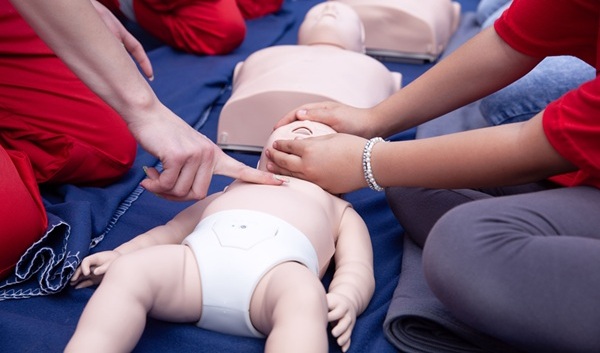
CPR Guidelines Updated for Pediatric and Neonatal Emergency Care and Resuscitation
Cardiac arrest in infants and children remains a leading cause of pediatric emergencies, with more than 7,000 out-of-hospital and 20,000 in-hospital cardiac arrests occurring annually in the United States.... Read more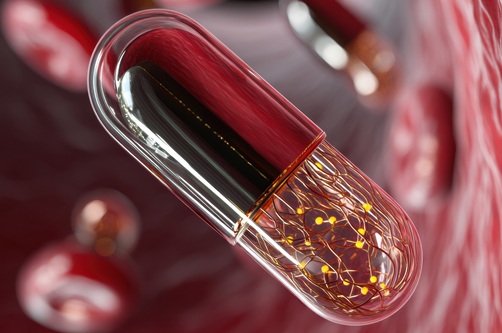
Ingestible Capsule Monitors Intestinal Inflammation
Acute mesenteric ischemia—a life-threatening condition caused by blocked blood flow to the intestines—remains difficult to diagnose early because its symptoms often mimic common digestive problems.... Read more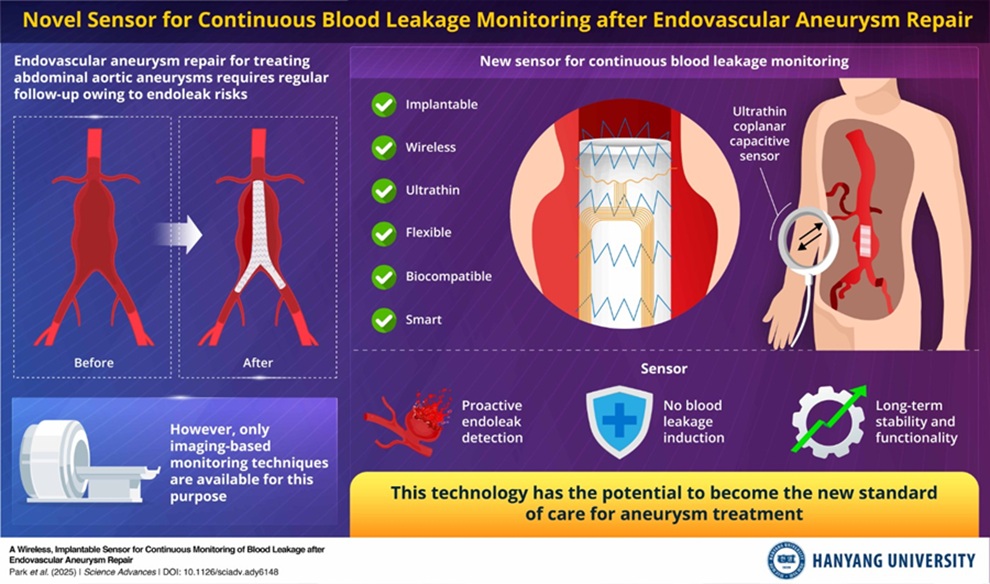
Wireless Implantable Sensor Enables Continuous Endoleak Monitoring
Endovascular aneurysm repair (EVAR) is a life-saving, minimally invasive treatment for abdominal aortic aneurysms—balloon-like bulges in the aorta that can rupture with fatal consequences.... Read more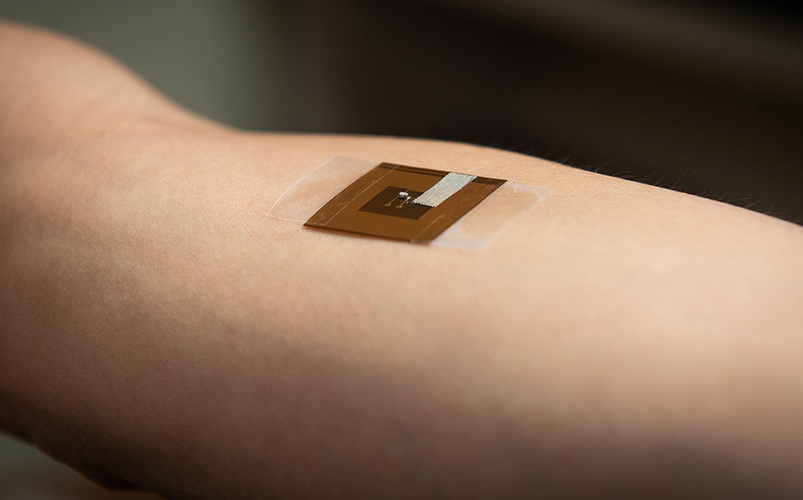
Wearable Patch for Early Skin Cancer Detection to Reduce Unnecessary Biopsies
Skin cancer remains one of the most dangerous and common cancers worldwide, with early detection crucial for improving survival rates. Traditional diagnostic methods—visual inspections, imaging, and biopsies—can... Read moreSurgical Techniques
view channel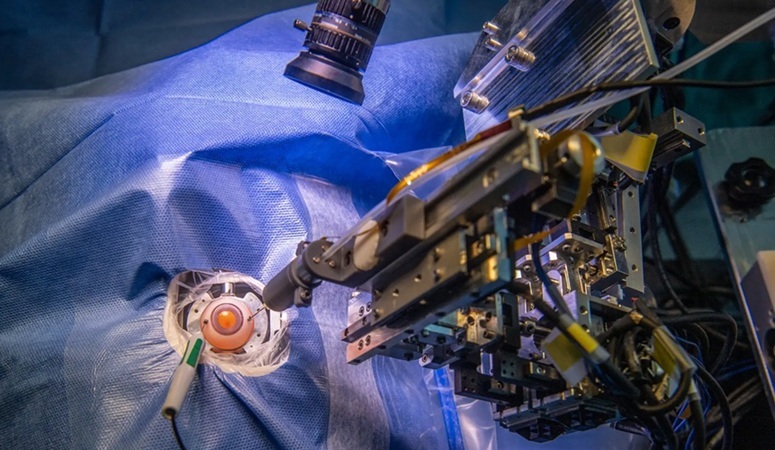
Robotic Assistant Delivers Ultra-Precision Injections with Rapid Setup Times
Age-related macular degeneration (AMD) is a leading cause of blindness worldwide, affecting nearly 200 million people, a figure expected to rise to 280 million by 2040. Current treatment involves doctors... Read more
Minimally Invasive Endoscopic Surgery Improves Severe Stroke Outcomes
Intracerebral hemorrhage, a type of stroke caused by bleeding deep within the brain, remains one of the most challenging neurological emergencies to treat. Accounting for about 15% of all strokes, it carries... Read morePatient Care
view channel
Revolutionary Automatic IV-Line Flushing Device to Enhance Infusion Care
More than 80% of in-hospital patients receive intravenous (IV) therapy. Every dose of IV medicine delivered in a small volume (<250 mL) infusion bag should be followed by subsequent flushing to ensure... Read more
VR Training Tool Combats Contamination of Portable Medical Equipment
Healthcare-associated infections (HAIs) impact one in every 31 patients, cause nearly 100,000 deaths each year, and cost USD 28.4 billion in direct medical expenses. Notably, up to 75% of these infections... Read more
Portable Biosensor Platform to Reduce Hospital-Acquired Infections
Approximately 4 million patients in the European Union acquire healthcare-associated infections (HAIs) or nosocomial infections each year, with around 37,000 deaths directly resulting from these infections,... Read moreFirst-Of-Its-Kind Portable Germicidal Light Technology Disinfects High-Touch Clinical Surfaces in Seconds
Reducing healthcare-acquired infections (HAIs) remains a pressing issue within global healthcare systems. In the United States alone, 1.7 million patients contract HAIs annually, leading to approximately... Read moreHealth IT
view channel
Printable Molecule-Selective Nanoparticles Enable Mass Production of Wearable Biosensors
The future of medicine is likely to focus on the personalization of healthcare—understanding exactly what an individual requires and delivering the appropriate combination of nutrients, metabolites, and... Read moreBusiness
view channel
Philips and Masimo Partner to Advance Patient Monitoring Measurement Technologies
Royal Philips (Amsterdam, Netherlands) and Masimo (Irvine, California, USA) have renewed their multi-year strategic collaboration, combining Philips’ expertise in patient monitoring with Masimo’s noninvasive... Read more
B. Braun Acquires Digital Microsurgery Company True Digital Surgery
The high-end microsurgery market in neurosurgery, spine, and ENT is undergoing a significant transformation. Traditional analog microscopes are giving way to digital exoscopes, which provide improved visualization,... Read more
CMEF 2025 to Promote Holistic and High-Quality Development of Medical and Health Industry
The 92nd China International Medical Equipment Fair (CMEF 2025) Autumn Exhibition is scheduled to be held from September 26 to 29 at the China Import and Export Fair Complex (Canton Fair Complex) in Guangzhou.... Read more















